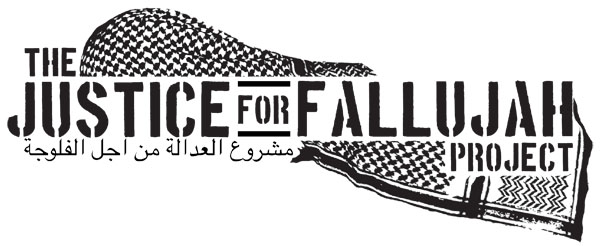Ladies and Gentlemen, my name is Ross Caputi. I’m speaking to you today because I have first hand knowledge about the atrocities that were carried out by American forces in Fallujah. I have first hand knowledge because I was there and I helped carry out these atrocities. I was a United States Marine and my battalion was part of the main effort of the second assault on Fallujah that took place in November of 2004, also known as Operation Phantom Fury. It is difficult for me to admit what we did to the people of Fallujah, but the hardest part is explaining to you how we just could not see the harm that we were doing. Although blessed with the gift of sight, we just could not see things as they really were. Only now, six years too late, can I see the truth. I would like to ask everyone listening to remove themselves from ideology, philosophical commitments, and nationalist allegiances and listen to what I am about to say with the objectivity that God would have, taking one life to be equal to another and taking the nationality of the victims and aggressors to be irrelevant.
Reply to comment
[i] This point refers to Rule 1; “The parties to the conflict must at all times distinguish between civilians and combatants. Attacks may only be directed against combatants. Attacks must not be directed against civilians.”
Rule 2: “Acts or threats of violence the primary purpose of which is to spread terror among the civilian population are prohibited.”
Rule 129 A: “Parties to an international armed conflict may not deport or forcibly transfer the civilian population of an occupied territory, in whole or in part, unless the security of the civilians involved or imperative military reasons so demand.”
Rule 131: “In case of displacement, all possible measures must be taken in order that the civilians concerned are received under satisfactory conditions of shelter, hygiene, health, safety and nutrition and that members of the same family are not separated.”
Rule 133: “The property rights of displaced persons must be respected.”
[ii] The use of white phosphorus against civilians was banned in the 1980 'Convention on Prohibitions or Restrictions on the Use of Certain Conventional Weapons Which May Be Deemed to Be Excessively Injurious or to Have Indiscriminate Effects' (entered into force in December 1983 and annexed to the Geneva Conventions 1949).
[iii] Rule 5: “Civilians are persons who are not members of the armed forces. The civilian population comprises all persons who are civilians.”
Rule 6: “Civilians are protected against attack, unless and for such time as they take a direct part in hostilities.”
Rule 15: “In the conduct of military operations, constant care must be taken to spare the civilian population, civilians and civilian objects. All feasible precautions must be taken to avoid, and in any event to minimize, incidental loss of civilian life, injury to civilians and damage to civilian objects.”
Rule 16: “Each party to the conflict must do everything feasible to verify that targets are military objectives.”
[iv] Rule 50: “The destruction or seizure of the property of an adversary is prohibited unless required by imperative military necessity.”
Rule 519(c): “Private property must be respected an may not be confiscated except where destruction or seizure of such property is required by imperative military necessity.”
Rule 52: “Pillage is prohibited.”
[v] Rule 7: “The parties to the conflict must at all times distinguish between civilian objectives and military objectives. Attacks may only be directed against military objectives. Attacks must not be directed against civilian objects.”
[vi] Rule 113: “Each party to the conflict must take all possible measures to prevent the dead from being despoiled. Mutilation of dead bodies is prohibited.”
Rule 115: “The dead must be disposed of in a respectful manner and their graves respected and properly maintained.”
Rule 116: “With a view to the identification of the dead, each party to the conflict must record all available information prior to disposal and mark the location of the graves.”
[vii] Rule 70: “The use of means and methods of warfare which are of a nature to cause superfluous injury or unnecessary suffering is prohibited;” see also
Rules 15 and 16, above.
Rule 17: “Each party to the conflict must take all feasible precautions in the choice of means and methods of warfare with a view to avoiding, and in any event to minimizing incidental loss of civilian life, injury to civilians and damage to civilian objects.”
Rule 19: “Each party to the conflict must do everything feasible to cancel or suspend an attack if it becomes apparent that the target is not a military objective or that the attack may be expected to cause incidental loss of civilian life, injury to civilians, damage to civilian objects, or a combination thereof, which would be excessive in relation to the concrete and direct military advantage anticipated.”
[viii] Rule 135: “Children affected by armed conflict are entitled to special respect and protection.”
Reply
© 2010 The Justice for Fallujah Project . Drupal theme by Kiwi Themes.
